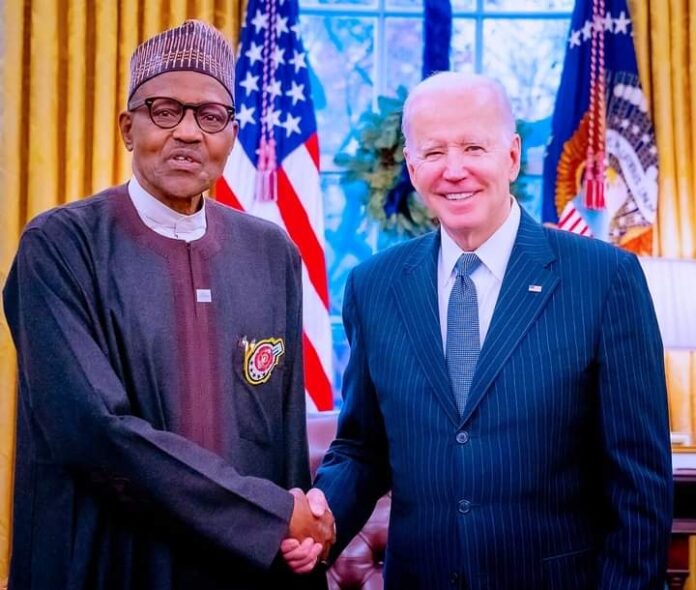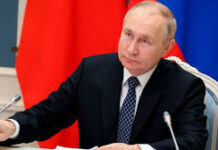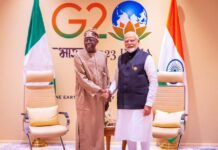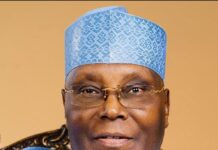
2023: Nigeria’s Elections Enhancing Democratic Governance in Africa – Washington Post
POLITICS DIGEST- The Washington Post has described the 2023 general elections in Nigeria as a watershed, amid minor glitches which tainted the credibility of the entire exercise.
The popular American tabloid made its position known in an opinion editorial (Op-ed) it shared online and titled: “Nigeria points the way toward democracy in a region in which it is scarce”.
In the editorial published on Monday, The Washington Post noted that, “in Nigeria, even with its chaotic and flawed process, the democratic system has held and is holding — far better, so far, than might have been expected”.
According to the influential US newspaper, there are many reasons as to why the recent elections in Nigeria offer a glimmer of hope for democracy to thrive in Africa.
It said: “It is encouraging, first, that the losing candidates are pursuing their claims through the courts.
“They have until March 31 to present their petitions to Nigeria’s appeals court tribunal, which would be expected to issue a written decision within 180 days. While the rhetoric has been heated, remarkably there have been no reports of post-election violence, intimidation or threats.
“No one has blocked highways, as happened in Brazil after Jair Bolsonaro lost his reelection bid. Opposition party supporters have not attempted an insurrection”.
Continuing, The Washington Post editorial, said: “Second, Nigeria’s military has stayed out of the fray. This was not a given, since Nigeria’s generals ruled the country after a series of coups for most of the 1980s and ’90s.
“In Africa and elsewhere, a supposedly flawed election has been a handy excuse for militaries to annul election results and seize power for themselves. It happened in Myanmar in early 2021, for example, despite no evidence of any fraud.
Read Also:
“If Nigeria’s generals remain on the sidelines this time, it could be taken as evidence that Africa’s most populous country, and its largest economy, has moved past its coup-prone history”.
The American newspaper, founded in 1877, observed that the 2023 elections’ cycle is the most competitive since the country’s democracy was restored in 1999.
“Each of the three top candidates — Mr. Tinubu, Mr. Abubakar and Mr. Obi — won 12 of the country’s 36 states, a surprisingly even split. And Mr. Obi, who was projected to win in some polls, could claim a stunning victory in Lagos state, Mr. Tinubu’s home turf.
“Mr. Obi’s campaign was powered by young, better-educated urban voters savvy with social media, but he was unable to make inroads in more rural and traditional areas. But at 61, he is nearly a decade younger than Mr. Tinubu, 70, and can be expected to be in politics for years to come,” it said.
The Washington Post explained that Nigeria’s neighbors and its major trading partners, including the United States, have all accepted the result, which most international observers said was largely free and fair, despite problems.
The tabloid however, argued that even a flawed election in Nigeria can set a standard in Africa, where staging a coup is more common than canvassing for votes.
It said: “Among Nigeria’s neighbors, Chad’s military leader, Mahamat Idriss Déby, who seized power when his father was killed in 2021, has repeatedly delayed elections and halted a return to democracy.
“Military leaders in Mali, which saw coups in 2020 and 2021, have delayed elections until 2024. Guinea’s first democratic leader was toppled in 2021. Niger has been rocked by coup attempts.
“Benin’s president, Patrice Talon, has clung to power and stacked the parliament, which must approve presidential candidates, with his supporters. In Cameroon, President Paul Biya has ruled since 1982”.
According to The Washington Post, although an election in Nigeria won’t turn Africa into a democratic utopia, it can help point the way to a different path.














